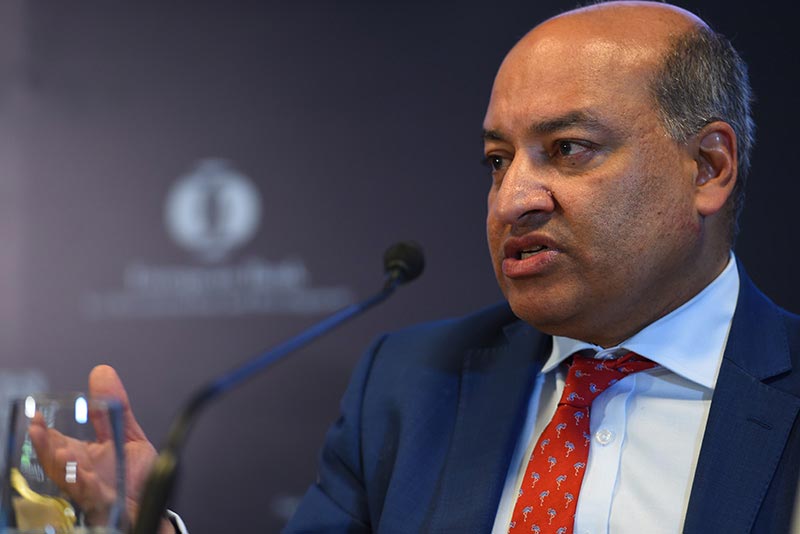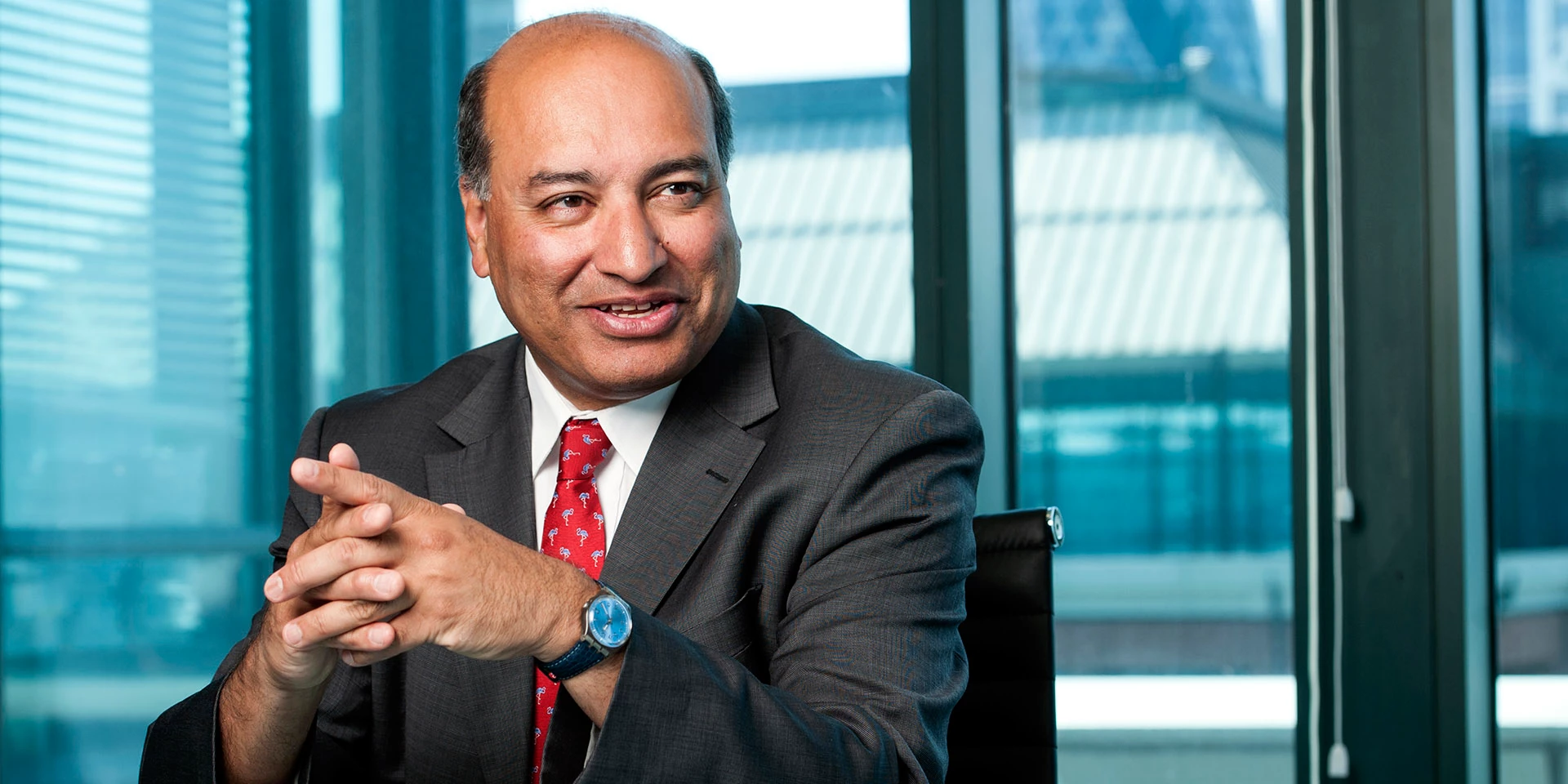By John Donnelly
Suma Chakrabarti has had a remarkable career in development. He started with a fellowship in Botswana in the early 1980s and continued in economic and administrative jobs in London with the Overseas Development Administration (the predecessor of the UK’s Department of International Development, known as DFID). He rose to become Permanent Secretary of both DFID and the Ministry of Justice and was knighted for his work in international development. He then served two four-year terms as President of the European Bank for Reconstruction and Development (EBRD).
In July, at the end of his term, he stepped down from EBRD, and has since been named as the Chair of the ODI Board of Trustees. ODI is an independent, global think tank. In this interview in mid-September, which was edited for length and clarity, he talks about the best approaches to help developing countries during the pandemic, the importance of climate change, and his worries about the future of multilateralism.
Q: Last spring, EBRD decided to focus all its financing to respond to the pandemic. Why did you make this decision, and what has been the impact?
A: The reason EBRD took the decision to focus all of our firepower on the impacts of dealing with COVID is very simple. For our private sector clients, COVID essentially stopped business as usual. We had to ensure that what we thought was a liquidity crisis didn’t turn into an insolvency crisis for our clients simply because of lack of flow of funds. We had to make sure the companies survived the crisis.
Looking back on it, the response worked very well in terms of the primary objective of ensuring companies’ survival, and ensuring jobs were also protected. There are a couple of major concerns, though, that still remain. One is that the whole purpose of our approach to development is to expand the list of clients that we want to work with. But in a situation where you have lockdown across all the EBRD offices, the IFC offices, and so on, there has been clearly a much greater focus on working with existing clients. So the envelope of clients has not really changed very much. As we grapple with this new way of working, we've got to think about it, because development finance is all about bringing more and newer clients inside the tent.
The second concern is it has been much more difficult to conduct policy dialogue. EBRD has really tried to ramp up its policy dialogue based on its operational expertise and that has been going very well. Now, because you can't have face-to-face contact and you can't build the empathetic relationships, that has also made policy dialogue more of a test. And that policy dialogue was very important in terms of creating markets and creating an investment climate for new investors and, indeed, institutions like EBRD and IFC.
Q: So how do you find new clients during a period of lockdown?
A: Well, I think some staff eventually will go back into their offices. They will be able to travel and meet clients in the field. We work in hard-to-reach places, that's the purpose of all our organizations. I don't think that can be solved without the face-to-face contact. I think there has to be an understanding among shareholders that [traveling at this time] does require probably more resources in order to enable that to happen in as safe a way as possible.
Q: What is the kind of recovery you expect in developing countries after the pandemic is more under control? A U-shaped recovery? A V-shaped recovery?
A: The last EBRD forecasts that I saw did suggest a V-shaped recovery. In some places where the supply chains have not yet been broken, where there are still some existing trade linkages and the firms have survived the liquidity phase, a V-shaped recovery is possible. In some cases where, for example, economies are very dependent on tourism, I think it's a much more challenging position—because we really need people to become confident and comfortable in visiting these places. I think these types of countries will find more of a U-shaped recovery.
Q: In order to build new business, and create more bankable projects, what are your thoughts about working Upstream – a term used by IFC to describe investing in early project preparation that eventually leads to private sector investments in months or a few years?
A: First of all, I applaud what [IFC CEO] Philippe [Le Houérou] has been doing more generally at IFC, but certainly in trying to create the right conditions to create markets and attract more investment. This is something that I, too, was very focused on at EBRD. We had a lot of knowledge, a lot of expertise in operational work, but didn't apply it in a systematic way to policy work, which could create the right conditions in each of the emerging markets we worked in.
One of the big changes in my two terms was to make EBRD not just an investment bank, but to be recognized as a policy bank. We made a huge effort to use our investment expertise to advise governments on what they should do to create the right business climate. If you look at the number of investment councils that EBRD has helped create, whether it's in Central Asia, in the Caucasus, or in the western Balkans, the idea was to bring together government, the private sector, and multilaterals. These councils really tend to thrash out the changes required to help attract more investment. So I am a strong supporter of IFC going down this route as well.

Suma Chakrabarti at the EBRD’s 25th Annual Meeting of the Board of Governors and Business Forum. Photo by Damian Prestidge
Q: One of your major goals at EBRD was to grow your climate investments. You set a goal that 40 percent of business would be climate-related by 2020, and you surpassed that goal – reaching 46 percent in 2019. But won’t such climate targets become much harder to reach during the pandemic, when there’s an emphasis on moving quickly to help companies survive? Do you hold these institutions accountable to their earlier climate targets?
A: They should keep their high standards. I think the crucial issue for IFC, for EBRD, for others, is that it's quite painstaking work to make an investment more green because it requires much more engagement with the client to work out how you do it. And when you're racing against time to get the financing out of the door to the clients, I'm afraid the green conditions could take a backseat. That's something that I hope both IFC and EBRD look at in the second half of this year–so they can get back on the green horse and achieve even better climate numbers going forward.
Q: One of the frequently discussed issues among multilateral development banks (MDBs) is how do you collaborate more, instead of compete for projects? How can these institutions become better collaborators?
A: It all has to do with institutional incentives. Do we have the incentives right? In the MDBs, are the incentives set to make sure that staff are geared toward maximizing development effectiveness, not maximizing lending volume? In the past, I think sometimes these organizations, including both of ours, can rightly be accused of the latter. But I think MDBs are moving in the right direction on incentives and EBRD and IFC have found ways of resolving issues around price competition. I would have liked to see more MDBs join us in this approach.
Q: What do you think about the future of multilateralism? Are you worried?
A: I am worried. I can contrast my first and second terms at EBRD very easily. In my first term, between 2012 and 2016, I was lucky enough to be leading at a time when multilateral development banks were in high demand in terms of taking forward a shared 2030 agenda. My second term was very much the opposite. I think there have been quite a lot of difficult attacks, it’s been a very difficult period. The question really is whether this is a permanent state of affairs, or something to do with the current political cycle? It’s impossible to say. But what I will say is that in my second term, the biggest supporters of multilateralism were the recipient countries. It is very striking for me that the clearest support from EBRD shareholders for expanding into sub-Saharan Africa came from emerging-market countries. They were pretty much united that this was the right thing to do. Let's hope that there is more support from non-recipient shareholders for multilateral institutions going forward, helping deliver on the goals, using their leverage to bring about change for the better. I will certainly be pushing that agenda. That is the right way to go.
Published in September 2020
